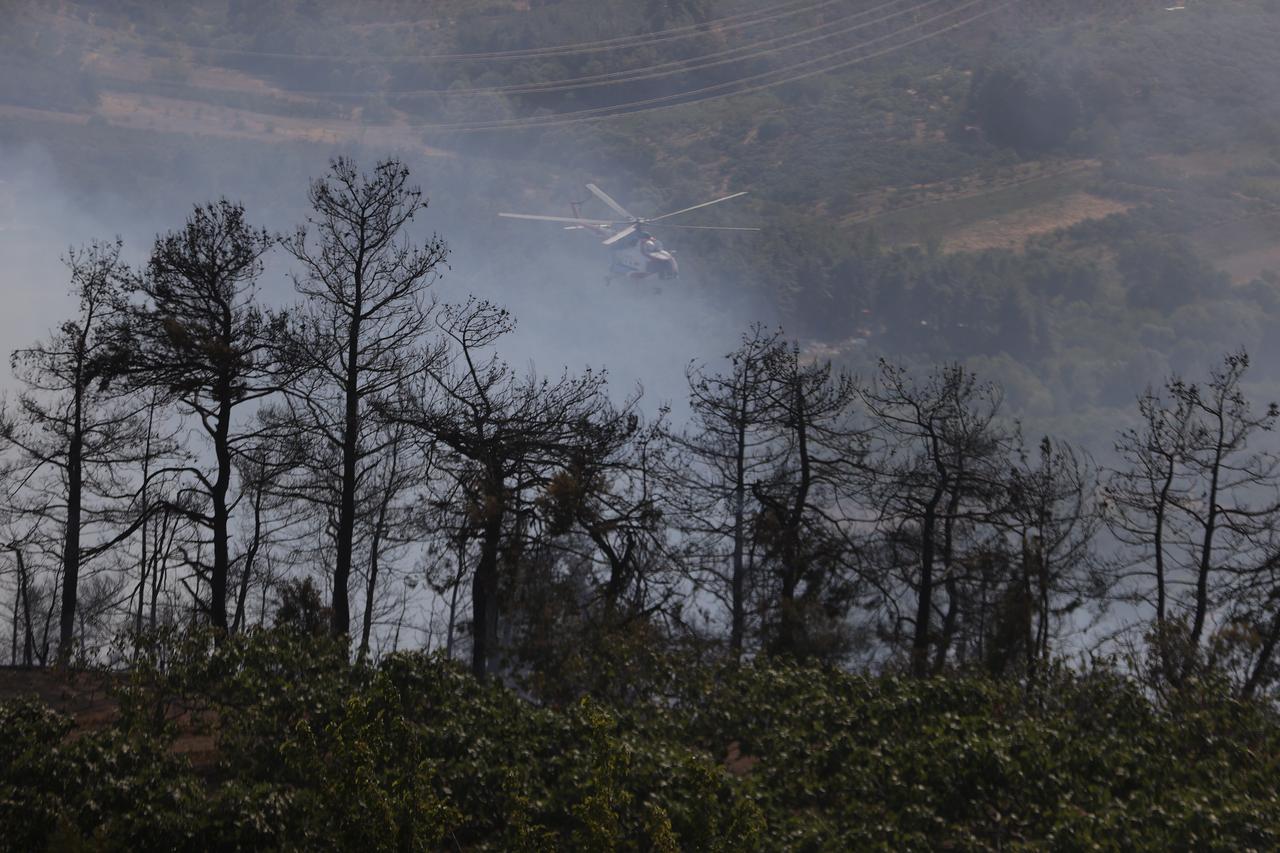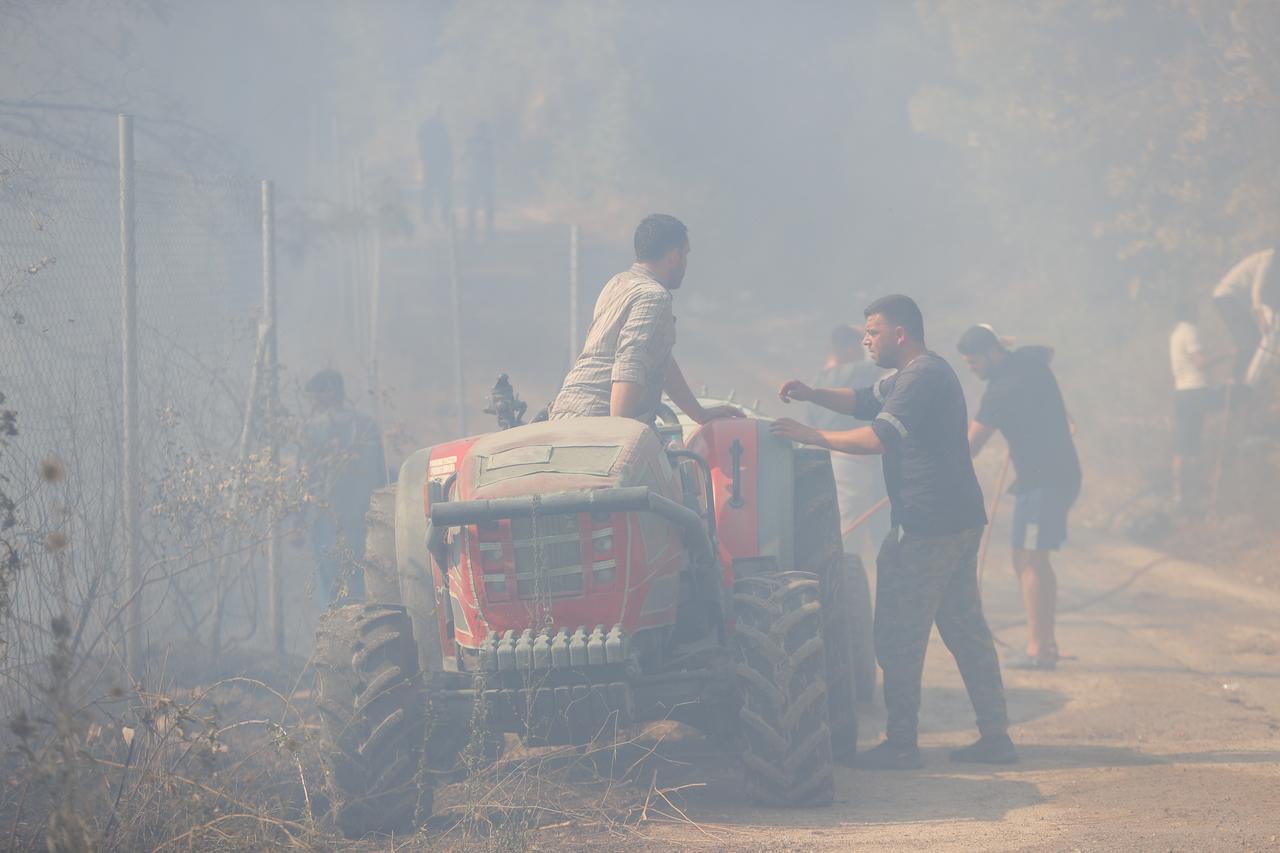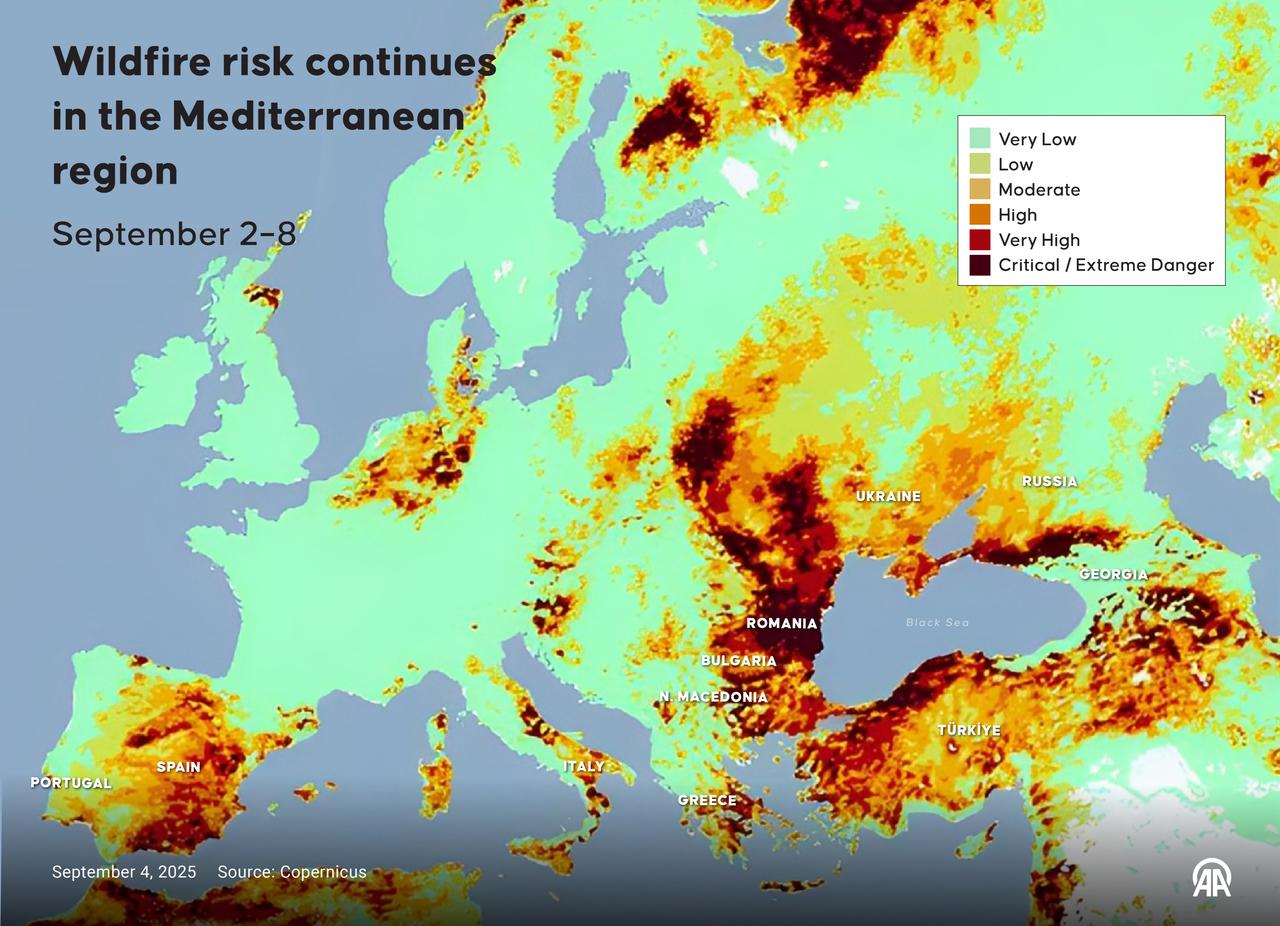
Türkiye is reforesting fire-ravaged areas with carefully selected species to strengthen resistance against future blazes, Agriculture and Forestry Minister Ibrahim Yumakli said Sunday.
“We select resistant species according to the soil structure, climate conditions, and ecosystem of each region,” Yumakli said.
“Species such as cypress, ash, carob, plane, sweetgum, oak, and stone pine are planted in five to 10 rows. In this way, resistance against fires is increased around strategic facilities and residential areas.”
Speaking to Türkiye daily, Yumakli said the rehabilitation of burned areas is a top priority.
“With scientifically based afforestation efforts, the General Directorate of Forestry is giving breath to the future,” he said.

“We carry out our work according to the soil structure, climate conditions, and ecosystem characteristics of each region. We carefully select fire-resistant species."
"Through the Project for the Rehabilitation of Burned Areas and the Establishment of Fire-Resistant Forests (YARDOP), different plant species are being used to change the behavior of fire, reduce its intensity, and prevent its spread," Yumakli added.
Each year, thousands of hectares of forest are destroyed by fires in Türkiye. Izmir, Antalya, Mugla, Bursa, Canakkale, and Balikesir are among the regions most affected in recent years. While efforts to combat fires continue, reforestation is underway in the burned areas.

Yumakli also highlighted policies addressing the global climate crisis.
“Within the framework of the Agricultural Drought Strategy and Action Plan we prepared for the 2023–2027 period, we aim to ensure sustainable water supply,” he said.
“All the agricultural drought risks of our provinces are analyzed at the district level through field observations, as well as data on temperature and precipitation, reservoir occupancy rates in dams built for irrigation purposes, and many other variables, which are also discussed with stakeholders,” he added.
Türkiye has faced a prolonged drought since March, affecting over 60% of the soil and contributing to thousands of fires this summer.
The country also recorded its hottest July in 55 years, the environment ministry said in early August.
Temperatures at 66 of Türkiye’s 220 weather stations showed an average rise of 1.9 degrees compared with previous years. The country also registered its highest-ever recorded temperature, 50.5 degrees Celsius (122.9 degrees Fahrenheit), in late July in Silopi, in the southeast.
Weeks of scorching heat were accompanied by wildfires across Türkiye. Fourteen people lost their lives battling blazes in July in the western part of the country.
On Aug. 8, wildfires in the west forced authorities to suspend shipping in the busy Dardanelles Strait and evacuate three villages.